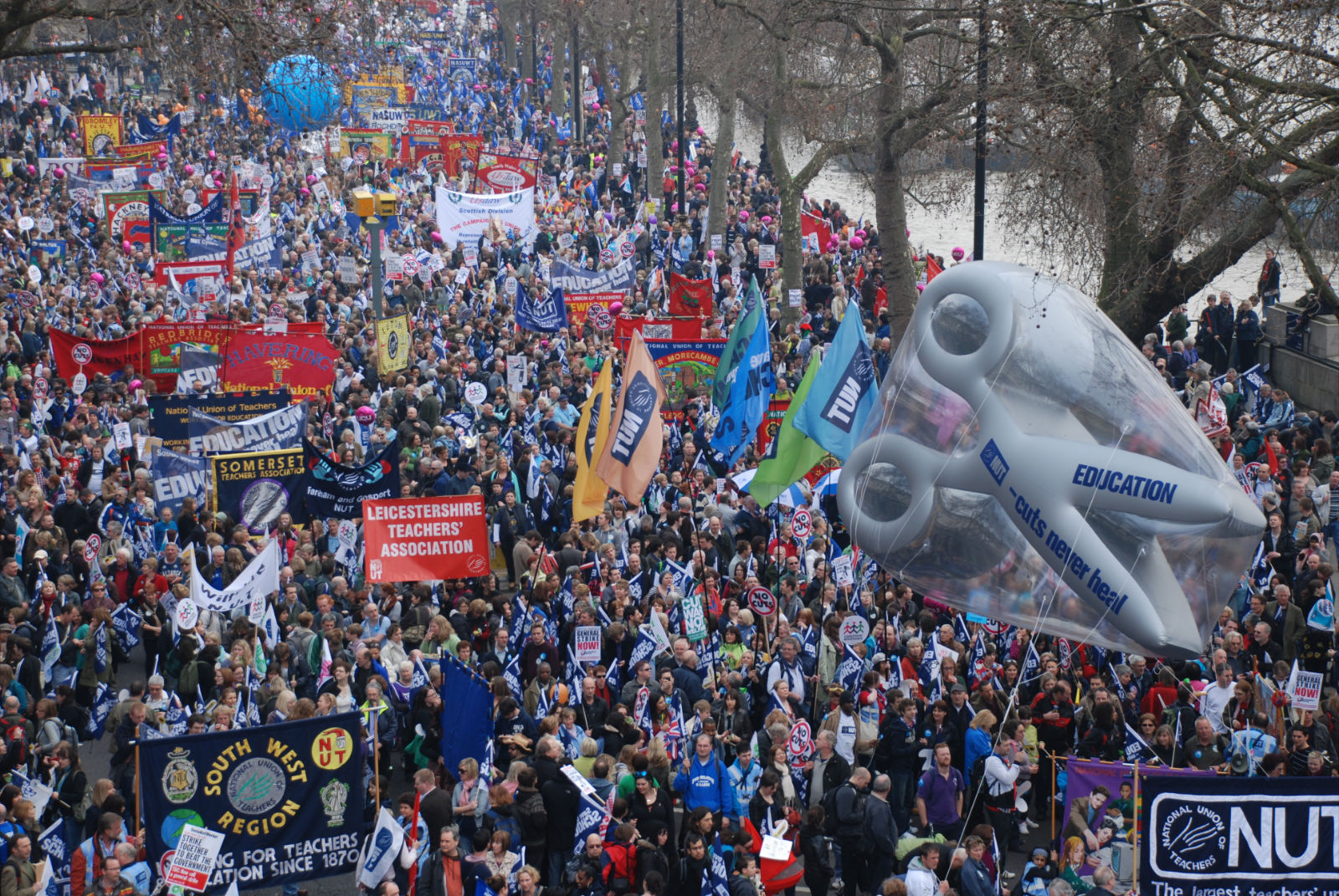When, on 26 March, over half a million took to the streets on a trade union demonstration against the cuts, Independent journalist Dominic Lawson sneered that more would be prepared to march in favour of the cuts. In the event at most a paltry 350 took to the streets to back the government’s cuts.
As the unpopularity of the government’s policies deepens and its supporters dwindle, the pressure is widening the splits in the Coalition. Tory MPs have even been describing their coalition partners as “yellow bastards” as they bicker over who will carry the odium of the hated Health and Social Care Bill. But despite the deepening tensions, the desire to cling to power is holding the Coalition together for now.
The government can be defeated but only if the anger shown on 26 March is harnessed around a clear fighting strategy. On 26 March the Socialist argued that, having marched together, now we need to strike together. We called for the next step to be a 24-hour public sector strike against the cuts and in defence of public sector pensions.
The first wave of coordinated strike action is now being prepared. It is an enormous step forward that the civil servants union, the PCS, voted almost unanimously, with only two votes against, to ballot for strike action on these issues (see below).
The NUT did the same at its conference at Easter. The UCU is also planning further action. The postal workers union, the CWU, has just voted unanimously to call on the TUC to coordinate a 24-hour general strike. CWU members in London have also voted overwhelmingly for strike action against management bullying and in defence of jobs.
30 June strike
On 30 June up to a million workers will take part in strike action against the government’s attack on pensions. Across the country strikers will take part in demonstrations and rallies. Those demonstrations should be an immense show of strength.
Those workers whose unions are not taking strike action should do all they can to show their support by demonstrating. School and college students should demonstrate together with their teachers and lecturers.
Successful action on 30 June will be an important springboard for further action. As Mark Serwotka, PCS general secretary, put it: “Three quarters of a million on 30 June needs to be turned into four million in the autumn”. Members of those public sector unions which are not yet planning strike action should organise a major campaign to demand their leaders act.
It is to be welcomed that Len McCluskey, general secretary of Unite, spoke at PCS conference. “We will build up to still broader action, if needs be, later in the year. To be absolutely clear, we will be balloting our members, coordinating our actions with yours and with other unions and building broad and effective community support to stop this government’s agenda in its tracks.” This now needs to be concretised.
Unison
The leadership of Unison is among the slowest to plan action to defend their members’ interests. Socialists in Unison demand that their general secretary, Dave Prentis, immediately discusses with the general secretaries of those unions that are striking on 30 June to ensure Unison takes part in the second wave of coordinated strikes.
It is no coincidence that the unions building for strike action on 30 June are not affiliated to the Labour Party. On 26 March the unspoken strategy of many trade union leaders was to try and avoid further struggle, limiting themselves to ‘march together today, vote Labour together tomorrow’.
Many of the demonstrators did go and vote Labour in the local elections on 5 May in order to punish the government, but understood doing so was not a strategy to stop the cuts.
In the aftermath of the elections council workers are being forced to initiate strike action to try to stop cuts – whether against Tory cuts in Southampton or Labour cuts in Lambeth. Unfortunately, the Unison leadership seem more willing to sanction ballots for branches in Tory local authorities than in Labour ones.
For those workers losing their jobs, however, the colour of the axe being wielded makes no difference at all. As Labour leader Ed Miliband made clear when he spoke to the demonstration on 26 March, New Labour also supports massive cuts in public services.
Miliband has now said he stands for “a better capitalism”. But it is a crisis of capitalism which is responsible for families in Britain facing the biggest cut in their living conditions since 1977 and it is the markets – capitalism – which are demanding public services are destroyed.
Alongside an industrial battle to stop the cuts, the trade union movement also needs to build a socialist, political alternative to the three major parties of big business.









